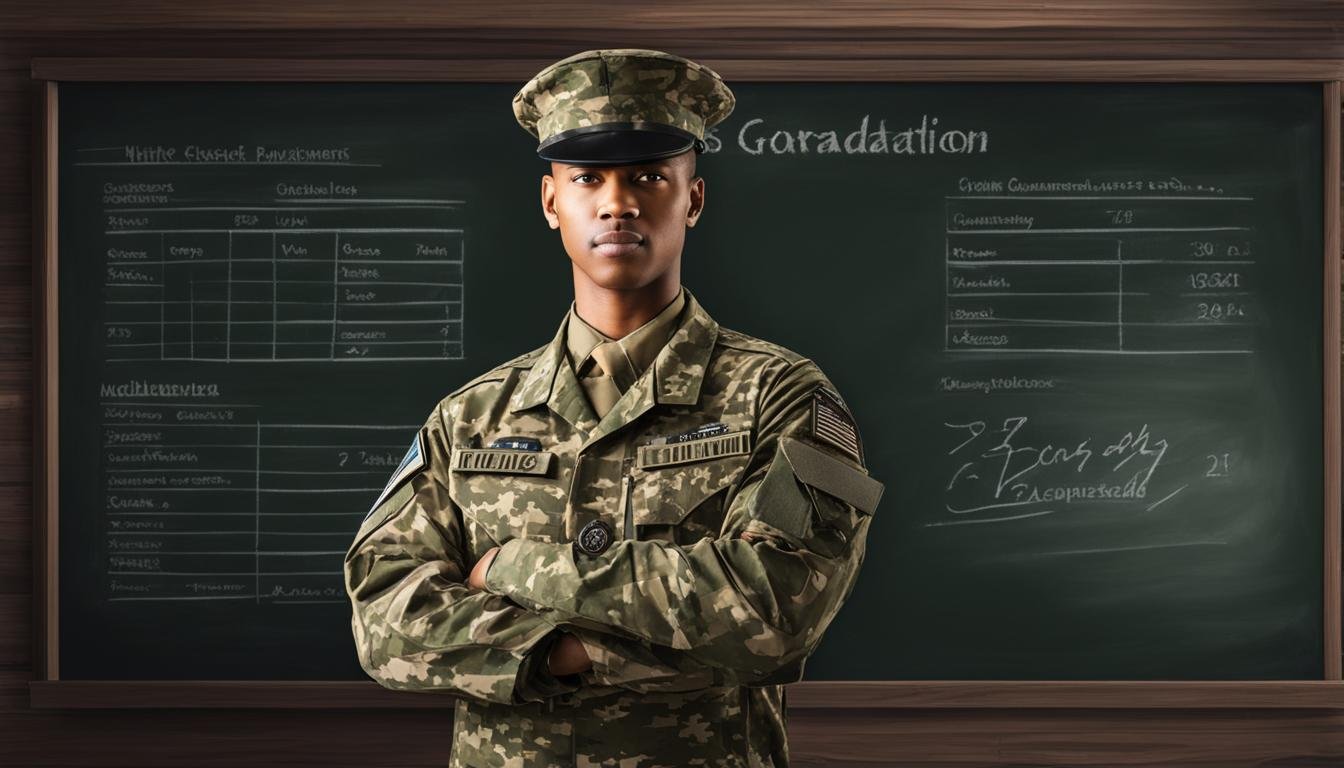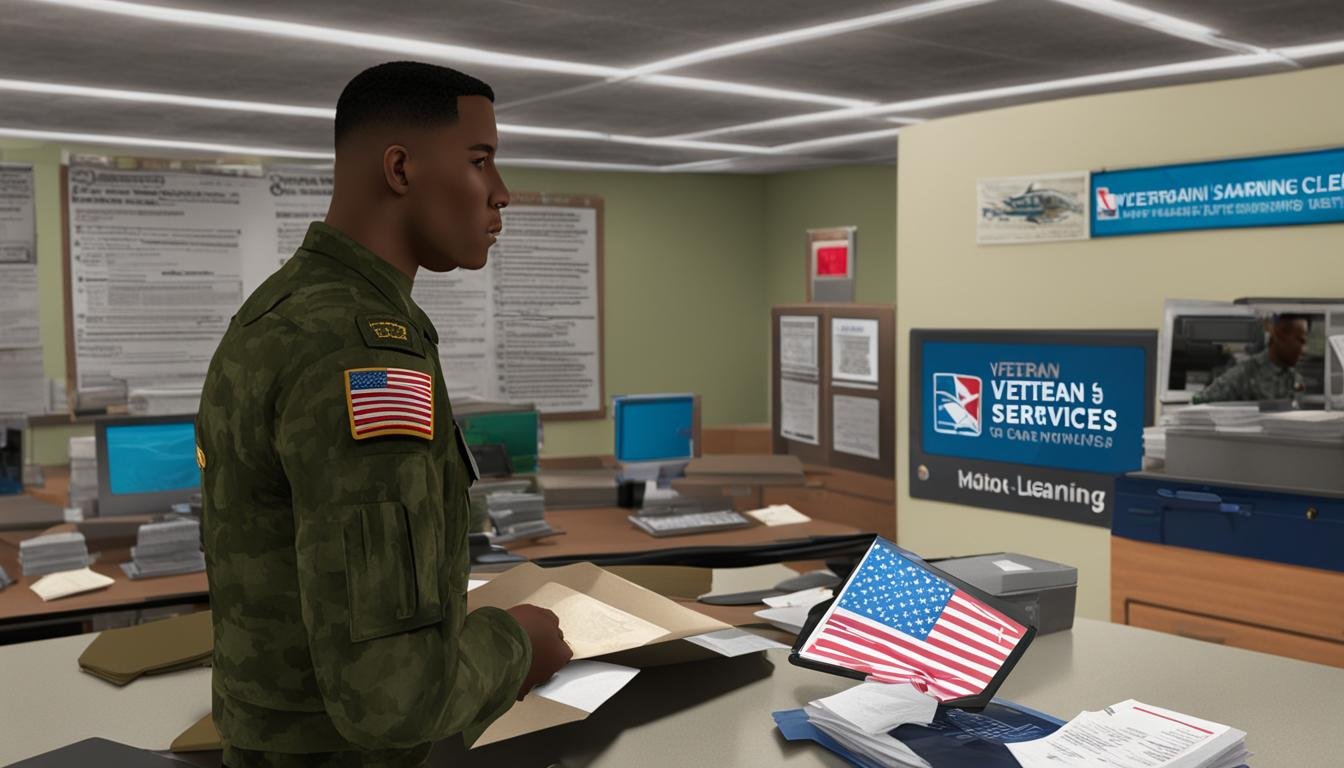Transitioning from military life to civilian life can be a challenging experience for military students. As they embark on this new chapter, they often face obstacles when navigating transfer policies within the education system. These policies can vary between schools and add complexity to the transition process.
The U.S. Army’s Transition Assistance Program (TAP) recognizes the importance of supporting military students during this transition. TAP aims to alleviate some of the challenges by providing soldiers with knowledge and strategies for a successful career transition. Transition counselors play a vital role in assisting soldiers, addressing their unique learning needs and challenges.
Some of the challenges faced by military students in navigating transfer policies include developing increased cultural awareness, understanding career opportunities, and adjusting to new financial and personal integration strategies. By addressing these challenges, TAP aims to enhance the transition experience for military students and ensure their academic success.
Key Takeaways
- Military students face challenges when navigating transfer policies in the education system.
- The U.S. Army’s Transition Assistance Program aims to support military students during their transition to civilian life.
- Transition counselors play a vital role in addressing the unique challenges faced by military students.
- Challenges include cultural awareness, career opportunities, and financial integration strategies.
- TAP aims to enhance the transition experience and promote academic success for military students.
As a military student, navigating the transfer policy when transitioning to a new school can present unique challenges. However, there are strategies you can employ to ensure a smoother transfer process. One of the first steps is to research early and gather information about potential schools and housing options. By doing so, you can make informed decisions and find a suitable environment for your education and personal needs.
Another valuable resource for military students is the School Liaison Officer (SLO). Reach out to the SLO to receive guidance and information about local school options and the transfer process. They can provide insights on programs, curriculum, and any accommodations that may be available for military students.
It’s crucial for military students and their parents to be aware of their rights under the Interstate Compact. This legislation ensures that military students have the ability to enroll in the appropriate grade level and receive necessary treatment and services for special needs. Understanding your rights can help you advocate for yourself and ensure a seamless transition.
During your move, it’s helpful to hand-carry essential paperwork and create an education binder. This way, you’ll have all the necessary documents readily available for enrollment and any potential transfer credit evaluations. Additionally, maintaining open communication with school staff and attending teacher conferences can support your academic success in your new school. Building these relationships can provide a support system and help you navigate any challenges that may arise.
| Strategy | Description |
|---|---|
| Research Early | Gather information about potential schools and housing options to make informed decisions. |
| Contact School Liaison Officer (SLO) | Obtain guidance and information about local school options and the transfer process. |
| Know Your Rights Under Interstate Compact | Understand your rights as a military student, ensuring appropriate grade placement and necessary services. |
| Hand-Carry Essential Paperwork | Keep important documents readily available for enrollment and transfer credit evaluations. |
| Create an Education Binder | Organize relevant educational records and information for easy access. |
| Maintain Open Communication | Stay in touch with school staff and attend teacher conferences to support academic success. |
By implementing these strategies, you can navigate the transfer policy more effectively as a military student. Remember to reach out to the appropriate resources and advocate for your needs to ensure a successful transition into your new educational environment.
Military students face unique challenges when navigating transfer policies from one institution to another. These challenges can include issues with credit transfers, eligibility for certain programs, and understanding how certain policies may impact their military benefits. Navigating the transfer policy for military students can be complex and require careful consideration.
The Importance of Cultural Training for Military Personnel
As the focus of military operations shifts, there has been a reduction in cultural training programs for military personnel. However, it is essential to recognize the importance of cultural competence in today’s complex global environment. Cultural training plays a vital role in enabling military personnel to understand and navigate different cultures effectively.
Professional military education should emphasize the significance of cultural training. By incorporating cultural competence into the curriculum design, military educational institutions can equip their students with the necessary knowledge and skills to operate in diverse environments. Training evaluation is crucial to ensure the effectiveness of cultural training programs and identify areas for improvement. By evaluating these programs based on training science, the military can enhance their effectiveness and align them with broader defense strategies.
Evaluating the impact of cultural training poses certain challenges, such as determining the program’s effectiveness and assessing its alignment with strategic goals. However, by documenting approaches and lessons from existing cultural training programs, the military can build a knowledge base for understanding foreign cultures and enhancing cultural capability requirements for the future. Furthermore, integrating these lessons into an organizational learning culture will continue to foster growth and adaptability within military personnel.



